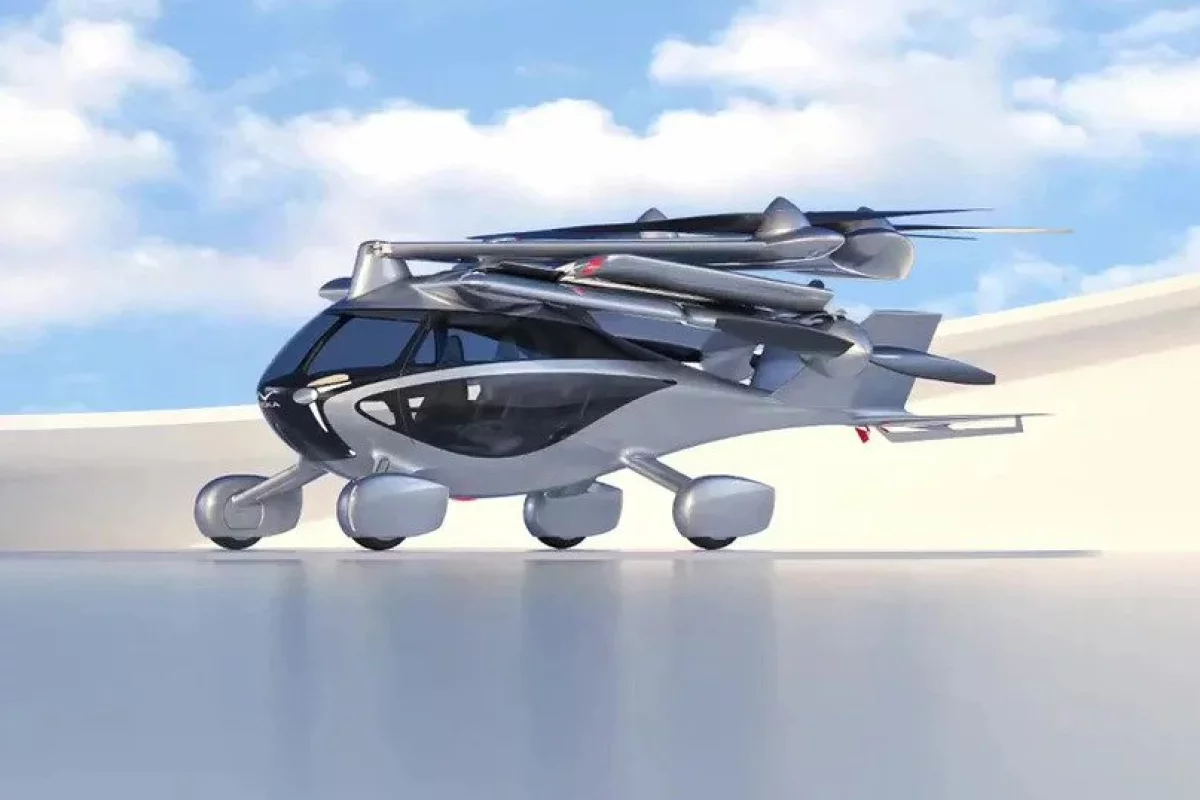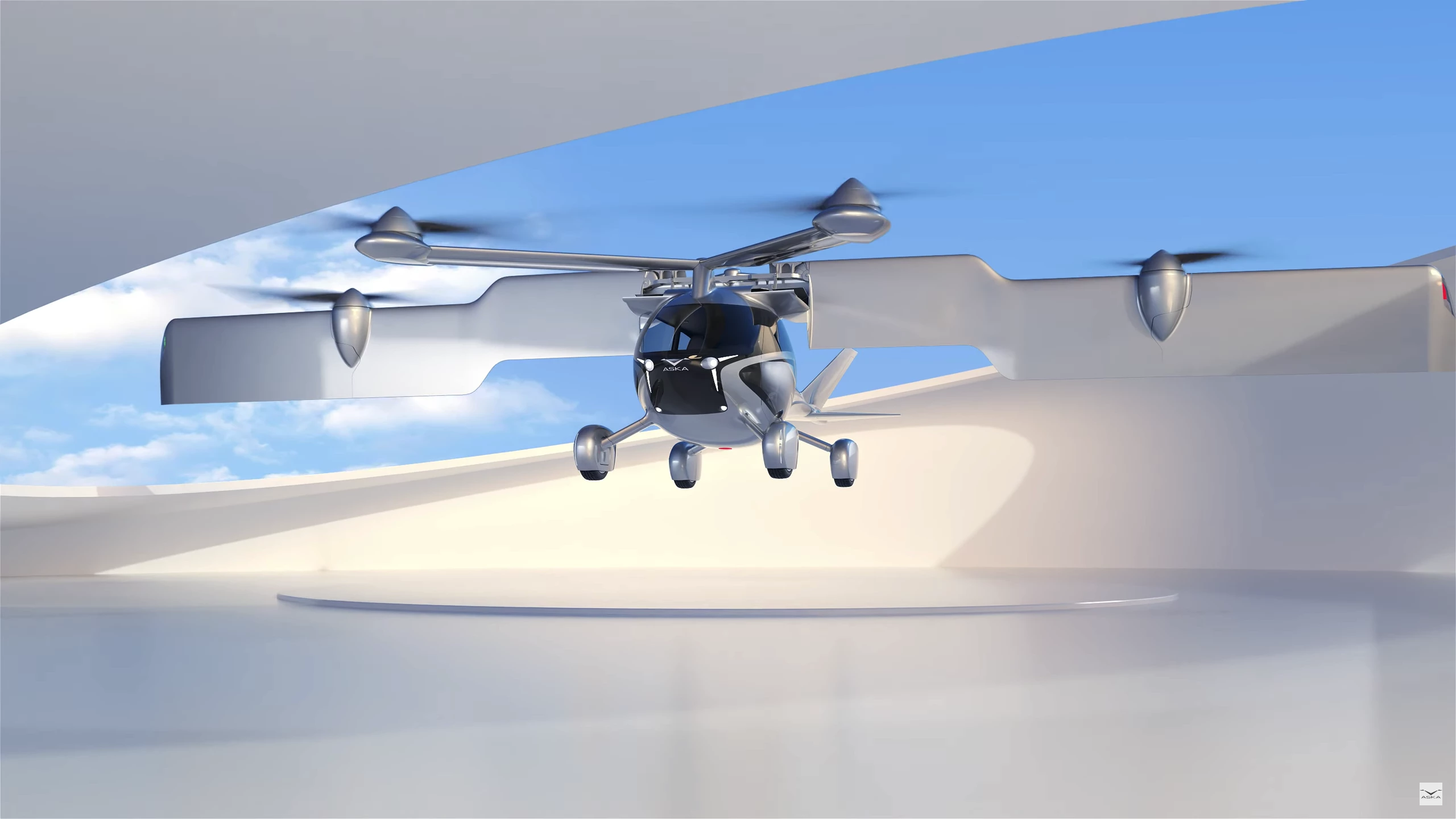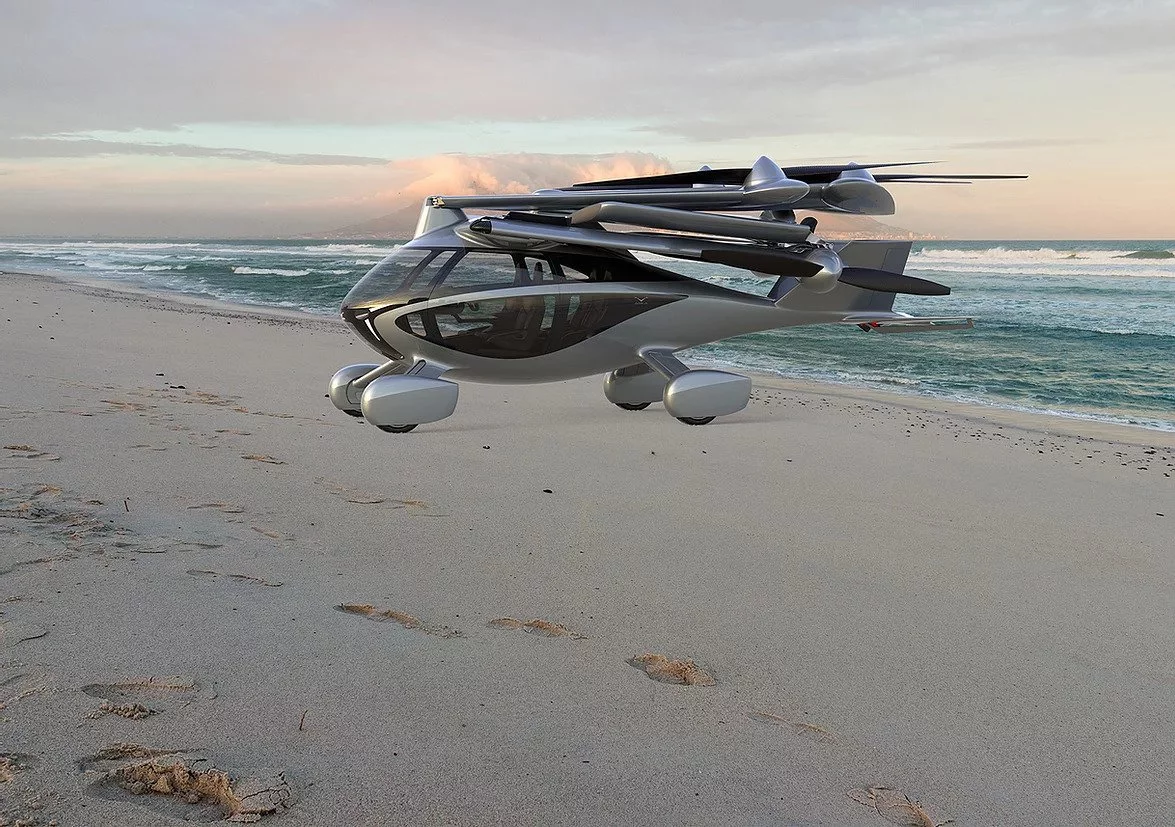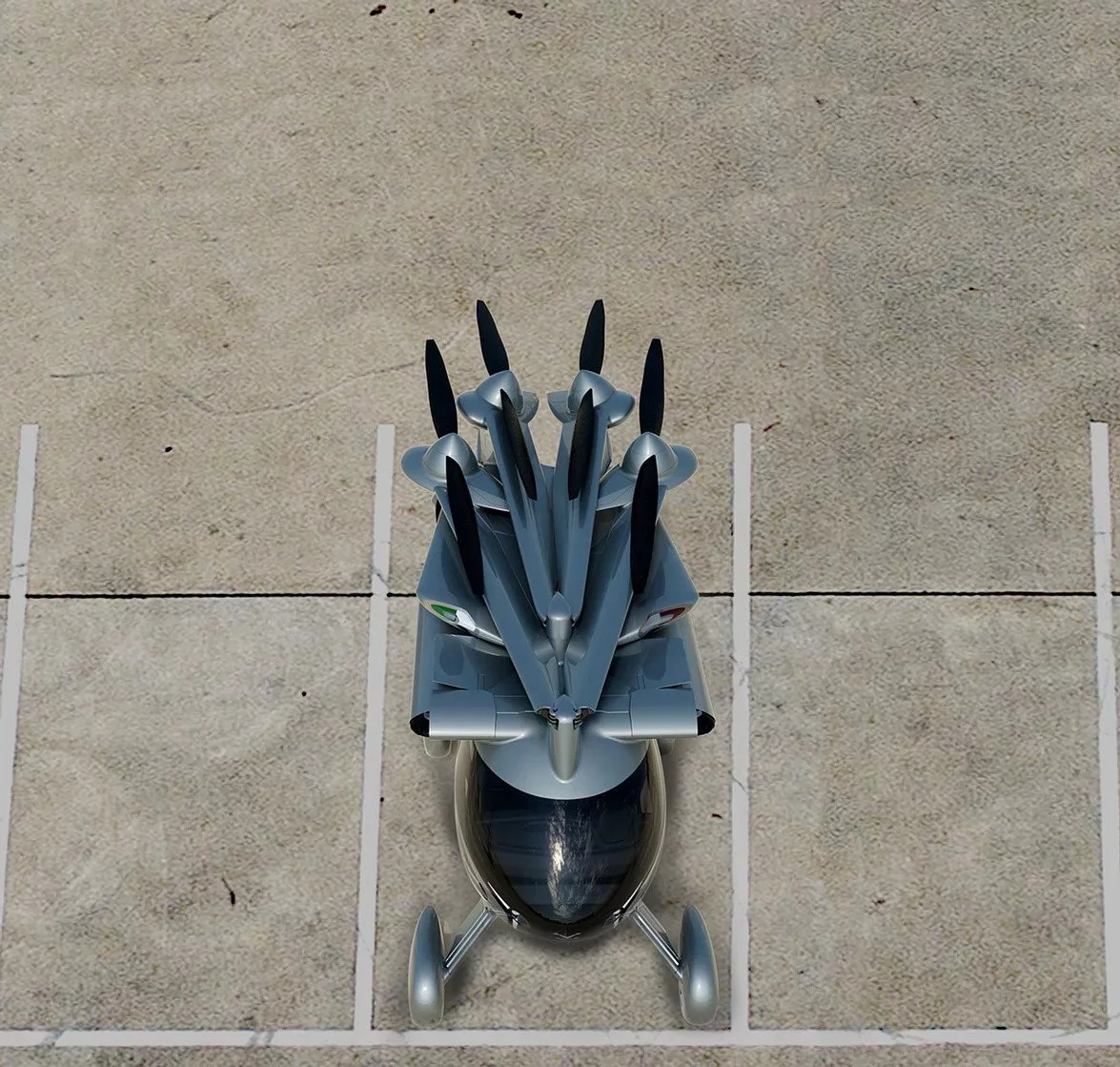Spoiler: it has a hefty price tag. But then, the Aska would be a remarkable vehicle: a spacious, four-seat electric SUV with the ability to stop and fold out a set of wings and props to transform into an electric VTOL/STOL aircraft.
We last heard from Israeli/American startup NFT (no relation to the bizarre non-fungible token madness sweeping the crypto and collectible worlds) back in 2019. The original concept for the Aska was a similar roadable eVTOL aircraft design in a three-seat retro saloon body, with the VTOL fans mounted in holes in the car's hood and tail sections.
The new design looks much closer to the standard electric VTOL air taxi shape: a somewhat helicopterish teardrop cabin seating four, a small V-shaped tail, and a six-prop electric VTOL lift system. Four pure vertical lift props are mounted on long arms that swing back out of the way when you're not flying, and the other two are mounted on a set of wings.
These wings articulate their little hearts out. Not only do they automagically fold themselves in half and scissor back toward the tail to keep the car narrow enough to drive and park, they're also designed to tilt, so the middle two VTOL props and wing can point upward for vertical takeoff and landing, and then tilt fully forward for more efficient forward flight using the wing for lift and those two central props for forward propulsion.

In the same way, it can be used as a short takeoff and landing (STOL) aircraft if you've got access to a runway. Just point the middle props and wing forward, gain a bit of speed and take off like a regular ol' airplane. This is far and away the most efficient way to fly; VTOL operations suck juice like nobody's business.
Should your juice be sucked, the Aska promises to ship with an old-fashioned range extender, in the form of an unspecified fossil fuel motor that can charge up the battery during flight. NFT says this bird can fly up to 250 miles (400 km) with the range extender extending its range, at speeds up to 150 mph (240 km/h). The company says these range extenders will be capable of running on hydrogen fuel too; that won't make anyone's life easier at this stage, but it does give owners a path to decarbonization down the track when hydrogen becomes easier to get hold of.
On the road ... well, it'll turn heads, that's for damn sure. With all its spiky wings and props folded back it looks like it's got a Sonic the Hedgehog haircut, or like somebody emptied the cutlery drawer on top of it. The fact that its humble in-wheel electric hub motors only allow it a top speed around 70 mph (112 km/h) will give onlookers even more time to stare, and it's a fairly certain bet that if you drive one of these on the road, you're going to see the backs of more phones than any goon in a Lambo.
The cabin has a funky, yokey steering wheel, a two-way gearshift system that does downward from park into reverse, neutral or drive, or else sideways from park into V and F modes that presumably mean VTOL and forward flight. From the looks of the renders, just about every surface that's angled toward your head will be a touchscreen. NFT says you'll need a pilot's license to fly it, but the bulk of the work in the air will be done by semi-autonomous computer control.

And whaddya know, it's on presale right now! Your fully refundable US$5,000 deposit gets you a slot on the build list, as well as a single share option. The price – an eye-watering $789,000 – includes getting you a pilot's license, a fully custom interior and a personalized license plate, which will help you work out which one's yours in the car park.
NFT says it plans to start flight testing a full-scale four-seat prototype by the end of 2022, then it'll spend the next three years working on certification and serial production processes, with the first flying cars expected in customers' hot little hands as soon as 2026.
It goes without saying: this one looks like a long shot. By specifically targeting private owners who want to drive a bit and fly a bit on their way to wherever they're going, NFT won't have fleet-scale pre-sales like the air taxi mobs do, to balance out against the crippling cost of aircraft development and certification. And it's not just aircraft development; it's folding, transitioning electric VTOL aircraft development, plus air certification, plus street certification as a four-wheeler, which means it'll need to satisfy all the stringent (and heavy) safety criteria of a passenger car.
To put it another way, NFT has to scale all the same mountains billion-dollar behemoths like Joby and Lilium have in front of them, plus make its aircraft fold up, and then get the whole contraption certified as a passenger car to boot. eVTOLs themselves are seriously tricky business, this thing's 10 times harder again.

So even with an 800-grand price tag, NFT will have to sell a ton of these to start making a profit. How big is the market for roadable aircraft right now? Not real big – even for much simpler, single-seat gyrocycles. And considering there's a very good chance air taxi services will be operating by the time these things launch, offering door-to-door, drive-fly-drive journeys cheaply through a smartphone app, the sell is sure to get even harder in the future. Are you really going to park this thing on the street where it might just get a ding big enough to wreck a prop?
At the end of the day, the Aska looks to us like a fun vehicle to think and fantasize about, but an absolute nightmare to build, certify and commercialize, and likely a pain in the butt to own even once you get it paid off.
We'd love to see jiggers like the Aska bumping their way down the street, windows down, Dreams by Van Halen pumping on the stereo as the flight gear folds out and they waft off the ground and out of the traffic with a carefree salute to the drivers stuck below. But we won't be holding our breath.
Check out how this thing folds and tilts in the video below.
Source: NFT Aska








